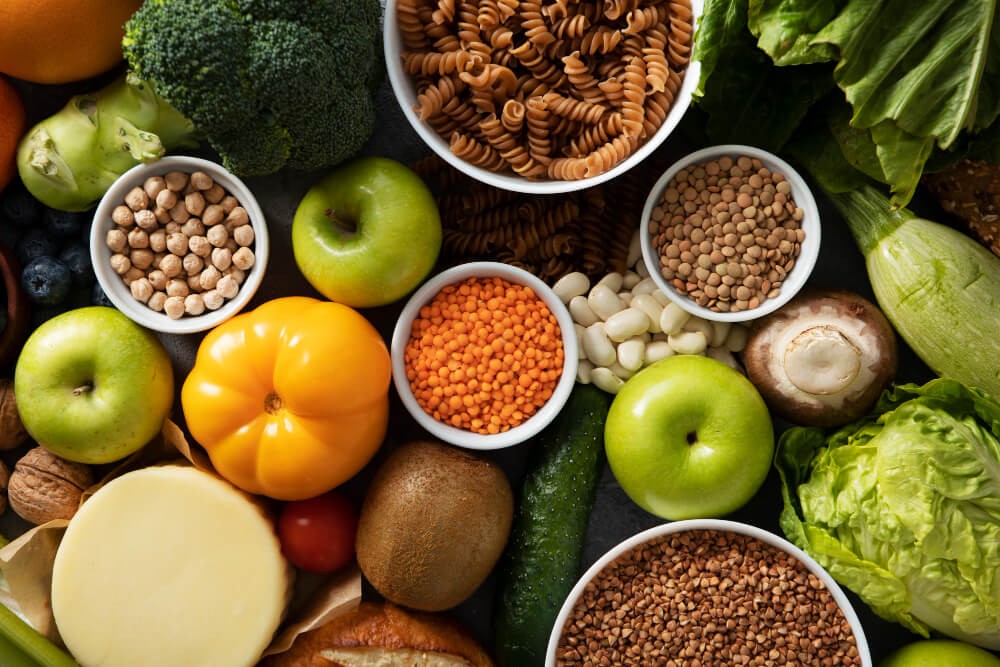The brain is a vital organ that governs numerous bodily functions, including thought processes and movement. Maintaining brain health requires a balanced lifestyle, especially when it comes to diet. This article outlines various types of foods that, when consumed excessively, may negatively impact brain health.
Foods and Drinks to Limit for Better Brain Health
Sugary Beverages
Sugary drinks, like soda and fruit juices with added sweeteners, are popular choices in hot weather. However, habits of drinking these high-sugar beverages regularly can harm both overall health and brain health. Studies indicate that excessive sugar intake may raise the risk of dementia.
Elevated blood sugar can lead to reduced brain function, increasing the likelihood of slower cognitive processes, memory loss, focus issues, and brain inflammation. Initially, these effects may be reversible with lifestyle improvements.
Processed Carbohydrates
Processed carbohydrates, including refined flours, table sugar, corn syrup, and certain fruit juices, have been stripped of fiber and essential nutrients through processing. These carbs tend to spike blood sugar, which can negatively affect brain function.
Consuming processed carbohydrates is linked to inflammation in the hippocampus, the part of the brain responsible for memory. Frequent intake of these foods can raise the risk of dementia, Alzheimer’s disease, and mild cognitive issues.
Packaged Foods
Factory-processed foods, such as chips, candy, instant noodles, sauces, and fast food, often contain high levels of added sugars, salt, and unhealthy fats. While high in calories, these foods offer limited nutritional value.
Research has shown that regular consumption of packaged foods may reduce the brain’s ability to metabolize sugar efficiently and lead to reduced brain tissue density.
Foods High in Trans Fats
Trans fats, a type of unsaturated fat, can be harmful to brain health. These fats occur naturally in some animal products like meat and milk but are also found in artificial forms in foods like margarine, white butter, frosting, snacks, and certain packaged baked goods.
Studies suggest that consuming high amounts of processed trans fats may increase the risk of Alzheimer’s, memory decline, reduced brain volume, and overall cognitive deterioration.
Alcoholic Beverages and Foods
Excessive alcohol consumption can impair memory and cause slurred speech in the short term. Over time, heavy drinking can lead to brain cell damage, resulting in memory problems and cognitive decline.
Fish with High Mercury Levels
Mercury is a toxic metal that can accumulate in the body over time. Some seafood, particularly large wild-caught fish, may contain high mercury levels.
When ingested, mercury disperses throughout the body, concentrating in the brain, liver, and kidneys. In pregnant women, mercury can interfere with fetal brain development and cause cellular damage.
While some foods can affect brain health if consumed too often, reducing or moderating these foods may help protect cognitive function. If you frequently consume these items, it may be beneficial to cut back. For further health advice, consult a doctor or use the Ai Care app’s consultation feature.
Curious about nutrition, food choices, and other diet tips? Click here!
- dr Nadia Opmalina
Mandi, E. (2023). The 7 Worst Foods for Your Brain. Available from; https://www.healthline.com/nutrition/worst-foods-for-your-brain
Brody, B. (2023). The Worst Foods for Your Brain. Available from: https://www.webmd.com/diet/ss/slideshow-worst-foods-for-your-brain
Fuhrman, J. (2022). Negative Effects of Sugar on the Brain. Available from: https://www.verywellmind.com/how-sugar-affects-the-brain-4065218
Bjarnadottir, A. (2023). Why Refined Carbs Are Bad For You. Available from: https://www.healthline.com/nutrition/why-refined-carbs-are-bad
MacMillan, A. (2024). How Does Alcohol Affect the Brain?. Available from: https://www.health.com/condition/alcoholism/effects-of-alcohol-on-the-brain












